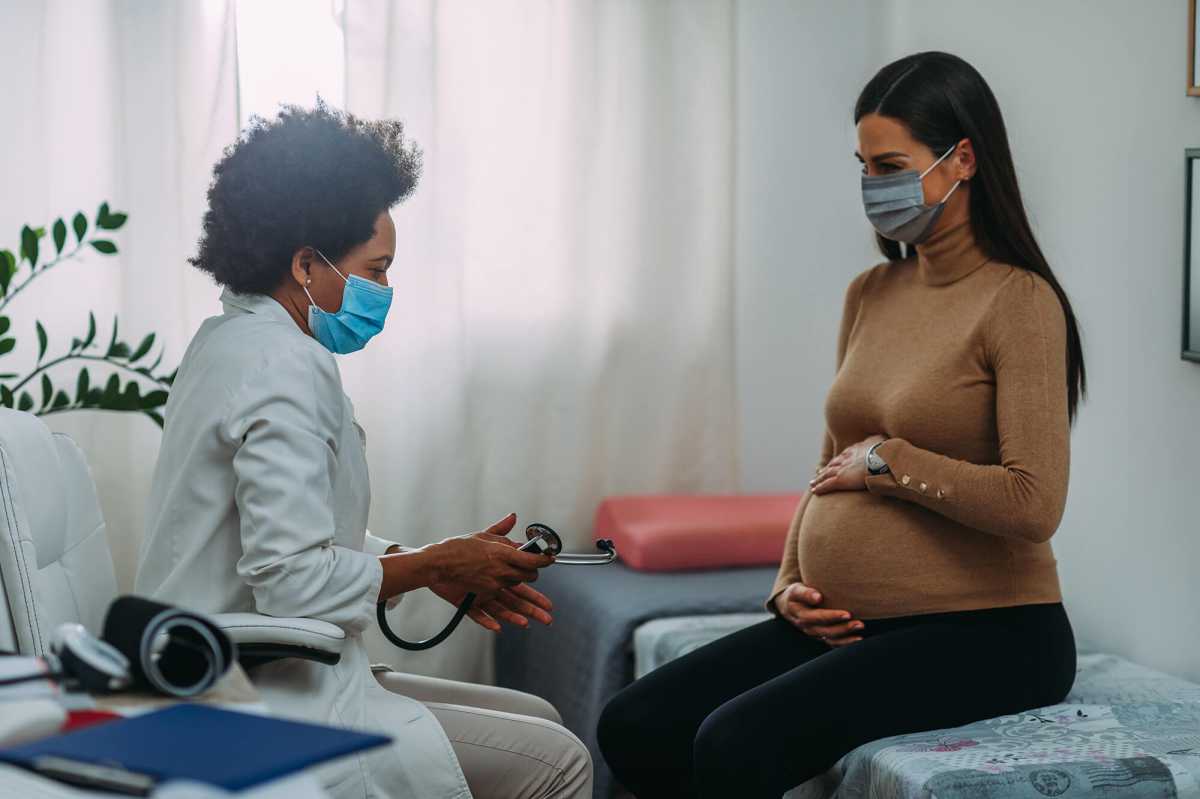One of the cries for Montefiore employees rallying against the hospital administrators in recent years is “profits over patients,” the notion that recent decisions by management to cut programs and underpay and overwork its nurses and hospital staff are indicative of a corporation, and not a health care provider.
Montefiore’s Nurse-Family Partnership program — an effort to drive the Bronx’s last-in-the-state maternal health outcomes — faces a shaky future, as Montefiore officials have been planning to scrap the program since May, according to nurses involved.
Montefiore officials told the Bronx Times on Friday that the grant dollars aren’t there to keep the program — which started in 2016 — going, but did not provide a timeline for next steps regarding the program’s future.
“While grant dollars were not available for Montefiore in this last renewal cycle, the 95 program participants currently enrolled in the program will continue to receive the full continuum of program services throughout the 24 months of their program,” said Tony Alfano, the vice president and executive director of Montefiore New Rochelle. “We continue to actively seek new funding to support new clients. This type of grant funding is more important than ever as hospitals across the country face the challenging financial environment resulting from COVID, inflation and high labor costs.”
Pushback from nurses and the New York State Nurses Association (NYSNA) on Friday led Montefiore to announce they would postpone closure of the program, but advocates are unsure if Montefiore administrators are willing to invest in much-needed maternal care for the borough.
“We don’t know if Montefiore even applied for the grant money to keep this life-saving program going and they certainly didn’t step in to fund it out of their own coffers,” said Vanessa Weldon, who works for Montefiore Home Health and chairs NYSNA’s Montefiore bargaining committee. “This is an important mission and program, everyone involved wants to know if all avenues were exhausted to save this program.”
When nurses were informed of Montefiore’s plans to scrap the program and to stop taking referrals in May, they told the Times that questions about Montefiore’s decision and timeline for the program’s future were left unanswered.
Data shows that New York state has a relatively high rate of maternal mortality relative to other states in the country, with 20.8 deaths per 100,000 people and 29% of those worst outcomes happening in the Bronx.
Montefiore — a health system with 15 hospitals as well as a primary and specialty care network of more than 180 locations across Westchester County, the Lower Hudson Valley and the Bronx — has had a challenging year, facing criticism by patients and electeds on relocation of services in underserved areas without public comment, data breaches and now, growing concerns from their employees on fair pay to Montefiore’s dedication to keeping its services.
“I’ve been at Montefiore for 22 years. And, and it’s a big change lately, within, I would say the last three to five years where it seems it’s more profit-driven than patient-related,” said Weldon. “Montefiore is the biggest health care system servicing this population in the Bronx, but it seems like Montefiore doesn’t want to provide care that they won’t get reimbursed for.”

The Nurse-Family Partnership originated in New York state in 2003, and serves 13 counties including the Five Boroughs.
The program’s success has been in preventative care, nurses say, by catching postpartum complications such as preeclampsia, postpartum depression, wound infections and breastfeeding methods for young and at-risk mothers. The program also expands care to pediatric patients up to age 17, who have acute and chronic health issues.
Montefiore resident physicians call for union recognition with SEIU
Providers warn that if Montefiore indefinitely suspends or cuts its program it would not only leave a dearth of access in the Bronx, but also no services in Yonkers.
“We want to lift the Bronx from being 62nd in health outcomes for our mothers. With this program, we’ve been able to catch things that impact the mother and the baby, while giving our patients information and access that is sorely needed,” said Weldon. “We are advocating for them because there’s no one to advocate for them. We want people to look at the Bronx and say that Montefiore has made such strides in maternal child health that they are no longer dead last in maternal health disparity.”
In New York state alone, about 20 people die per 100,000 live births, and those in the Black community are more than twice as likely to experience life-threatening complications during or after childbirth and more than eight times as likely to die from a adverse pregnancy outcomes.
It’s not just Black mothers imperiled in the delivery room, however, as more than 50,000 women in the U.S. are harmed giving birth each year, according to the Centers for Disease Control and Prevention. Overall, New Yorkers have high rates of serious complications related to childbirth, but Black, Latino and Asian women are more likely to experience those complications, and also to die as a result of pregnancy-related causes.
The Williamsbridge section — as reported in a March 2021 maternal health report from then-Bronx Borough President Ruben Diaz Jr. — has the borough’s worst maternal outcomes with 100 cases of severe maternal morbidity for every maternal death.
Reach Robbie Sequeira at rsequeira@schnepsmedia.com or (718) 260-4599. For more coverage, follow us on Twitter, Facebook and Instagram @bronxtimes


















